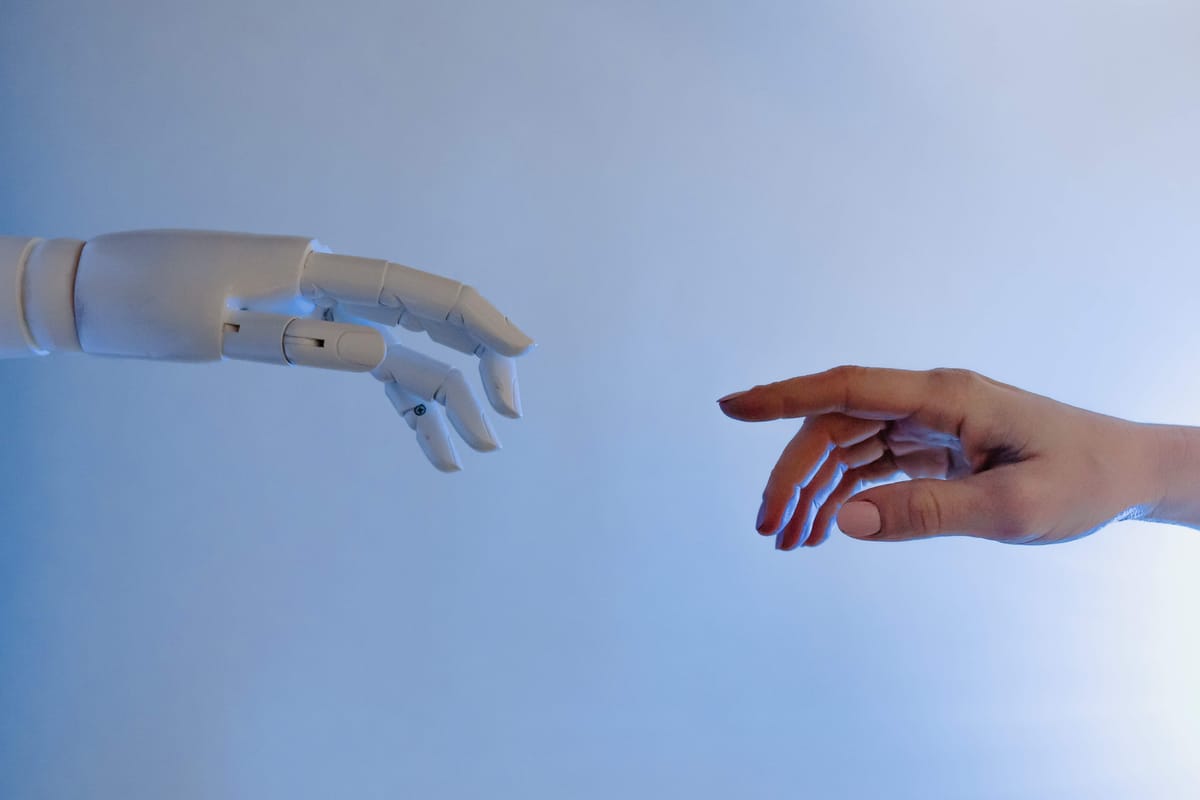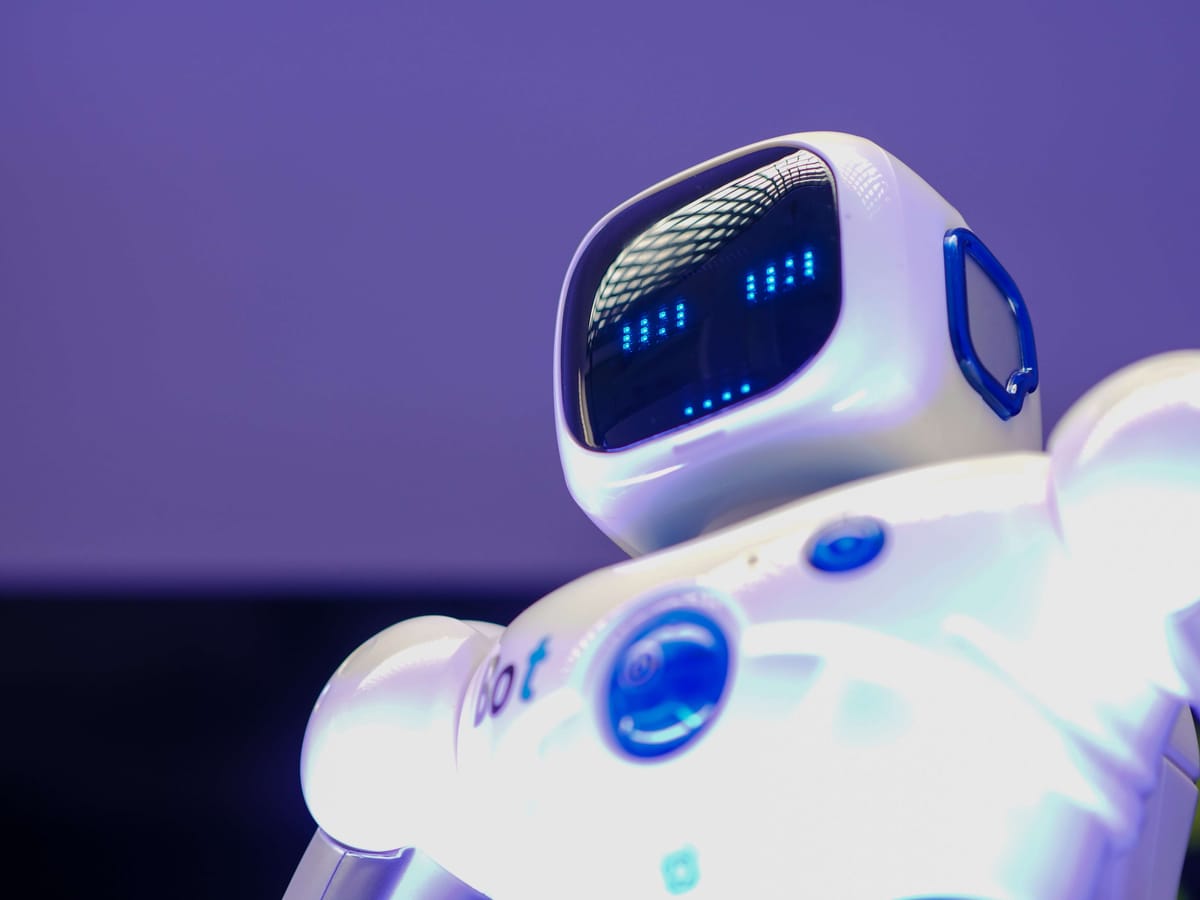A new AI-blueprint for marketing teams?
In our ever-evolving marketing landscape, the introduction of AI gives us all new opportunities, as well as heightened expectations to do more with less. As investments in marketing technology continue to climb, predicted to reach over $10bn in the US alone by 2025, the pressure to maximize productivity and ROI intensifies with the introduction of AI capabilities in practically every platform out there. Modern marketing leaders are now tasked with crafting blueprints that blend human creativity with machine efficiency.
Obviously, this will have a massive impact on how we think about, and build the ideal marketing team. As someone who has built several global marketing teams from scratch, often specifying the tech that goes alongside the people, I think it is critical we think carefully about how our teams have to evolve with the introduction of AI.
The easiest way I could think of approaching this, was to think about three different business scenarios, and how we need to think about the team that fits each.

Kickstarting success: building an agile AI-driven marketing team
Scenario — growing a startup having just completed a Series A funding round.
This is a common challenge, as the pragmatic 'do what works' shifts to 'build for sustained success' has to take place as new shareholders and investors have different –often much greater – expectations for what marketing should deliver. Plus in such a competitive market, where should new capital be allocated to build a forward-looking marketing team, with AI in mind?
For this stage, I would recommend a dual-focus approach: invest in key senior hires for strategic leadership before hiring too many others, and leverage AI tools to enhance creativity, analytics, and automation with the existing small team. This balance between human capital and machine intelligence is crucial.
As a recent Gartner report states "AI is revolutionizing marketing, not only by automating routine tasks but by providing deeper insights into customer behaviors and preferences, which were previously unattainable.". Gone are the days when you had to scout around for a specific specialist to know how to start building a particular campaign – if it's something new, you can get a great starting point from an AI platform like ChatGPT, or built-in AI advice in tools like Hubspot or Salesforce.
The weak point of AI is still originality and nuanced insights – outputs tend to revert to the middle of the bell curve – so hiring an experienced manager or leader for that vertical, a creative who can combine concepts in new ways, and a tech-savvy marketing executive who can get immersed in AI tools and platforms and squeeze the maximum value out of them are probably the three you need first.
Refining for efficiency: the power of AI for growth stage companies
Scenario – a growth-stage startup with a solid product-market fit, led by a small but passionate team.
In this situation, often with a strong start after investment, the key wins here are cross-department – aligning sales, product, customer success and marketing. Often conversion rates and retention rates lag, LTV is poorly defined and measured, and the existing team is probably overwhelmed with day to day tasks (as marketing often gets given many jobs beyond lead gen and brand building). What’s the winning formula here?
Most marketing leaders would highlight the importance of structured processes and rigorous analytics to get in place so the team, as it scales, can have a bigger impact. AI can have a greate impact here. Using AI for testing and optimization can unveil quick wins and enhance campaign management, processes for rapid multi-channel campaign production, and insights into strengths and weaknesses in the customer and sales journey are the big wins that can be unlocked.
McKinsey's report on the Economic Potential of Generative AI: "AI tools are pivotal in transforming the approach to marketing allowing teams to make data-driven decisions and significantly improve campaign outcomes."
Thriving on a budget: AI for lean marketing
Scenario – a lean startup that has achieved impressive organic growth.
Facing well-funded, more established competitors, how can you build marketing muscle without a hefty budget? As the funding cycle moves back towards growth in investment capital over the next 18 months, having retrenched 2022-23, this is going to be a common problem.
As ever, with or without AI, savvy marketers often turn to partnerships and marketing automation for scalable solutions. AI tools are rapidly improving these platforms, making them more productive and scalable for small teams, often offer free tiers or trial access, and provide a cost-effective way to leverage technology. In today's competitive landscape, "AI tools are a boon for startups, especially those with limited resources. They level the playing field, allowing smaller teams to achieve big results." (Forbes)

Core capabilities for the AI-era marketing team
Regardless of the startup stage, certain basic capabilities are essential:
- Data architecture: Tools for managing and analyzing data at scale are crucial. According to a Salesforce report, high-performing marketing teams are 1.5 times more likely to use AI in their strategies.
- Journey mapping: Strong customer experience (CX) strategy is key to identifying opportunities and barriers in the customer journey.
- Campaign management: Process-oriented workflows are vital for multi-channel program activation.
- Creative AI: Cloud-based platforms using machine learning (ML) for content creation and trend forecasting provide a creative edge.
- Conversion optimization: A growth hacking mindset is needed for continuous improvement in customer engagement and response.
Not only will this change the shape of the future marketing team, it will also impact how we define marketing roles to start with. As AI takes on some of the 'heavy lifting' for better productivity, marketing teams will have to have more skills either getting the most out of the new tools, or focusing these outputs into campaigns that cut through, are relatable for buyers, and do not 'revert to the average' as the volume of content ramps up everywhere.
I have taken a few examples and tried to envisage how these roles might change. For example...
I would love to hear your thoughts on what roles you can see disappearing with the introduction of AI, and what new roles will be created. I'm an optimist, and I think we will be able to do better marketing, more interesting marketing without being weighed down by the processes and dashboards that has taken a lot of our time to find the insights the business needs.
The future beckons
As technology continues to disrupt industries, the fusion of skilled marketers and smart software will be crucial for sustaining a competitive edge. The future of marketing lies in teams that can artfully interweave human insight with AI's analytical prowess. According to the Gartner report I mentioned above, 38% of executives indicated that customer experience and retention is the primary purpose of their generative AI investments, followed by revenue growth (26%), and cost optimization (17%).
The real question for marketers is "How can we deliver more value using AI?" – I think (I hope) it will be through better creative, more engaging stories, and better experiences throughout the customer journey. If we keep that in mind, I think it can only be a positive, whatever your job title is in a few years.
So, perhaps we all be 'AI-augmented marketers' soon? Discuss...



